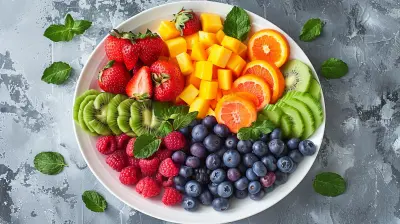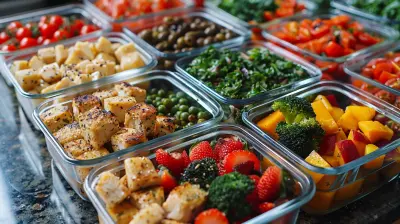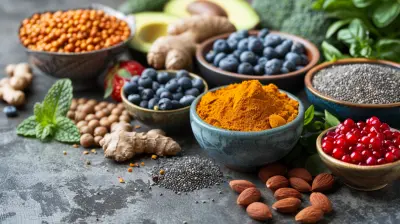Choosing Organic on a Budget: Tips for Eating Healthy Without Overspending
19 June 2025
Let’s face it: eating organic comes with a reputation for being pricey. You stroll through the organic section of the grocery store, and it’s easy to feel like your wallet might burst into tears. But here’s the truth—you don’t have to choose between eating healthy and staying on budget. Yes, you heard me right! With a little planning, creativity, and some savvy shopping techniques, it’s totally possible to enjoy organic foods without emptying your bank account. So, grab your shopping list and let’s dive into the nitty-gritty of how to go organic without overspending. 
Why Go Organic?
Before we get into the money-saving tips, let’s talk about why organic food is worth considering in the first place. Organic fruits, veggies, and other products are grown without synthetic pesticides, herbicides, or fertilizers. They’re free from GMOs and are often richer in nutrients compared to conventionally-grown produce. Plus, choosing organic means you're supporting sustainable farming practices, which are kinder to the environment.But, let’s be real: the price tag on organic items can sometimes feel like a roadblock. That’s where these budgeting hacks come into play—because your health goals shouldn’t cost you an arm and a leg.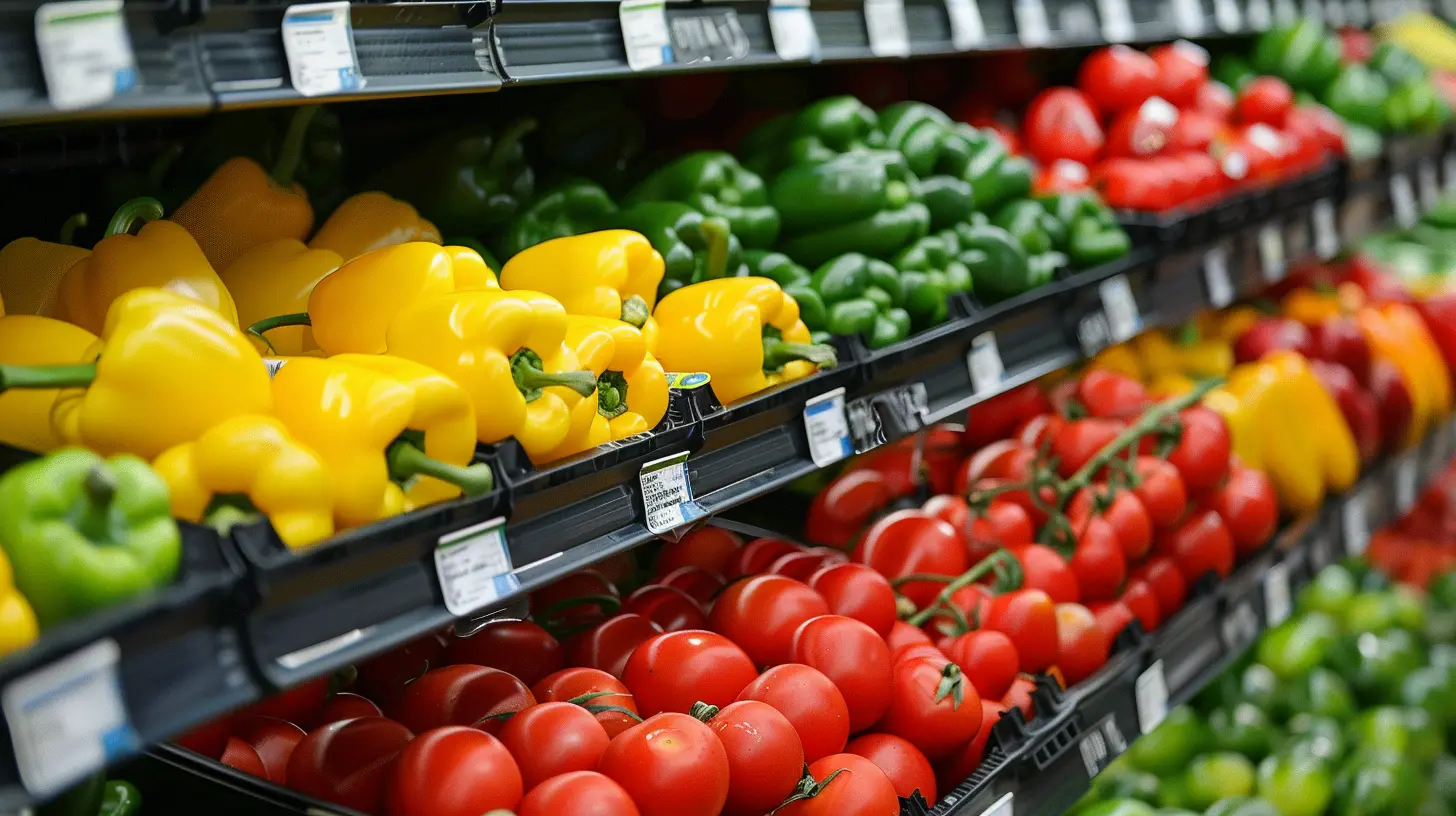
1. Start With the Dirty Dozen and Clean Fifteen
Ever heard of the "Dirty Dozen" and "Clean Fifteen"? No, it’s not a secret society—it’s a handy guide created by the Environmental Working Group (EWG) to help consumers prioritize when to buy organic.The "Dirty Dozen" is a list of fruits and vegetables that tend to have the highest levels of pesticide residues. Think strawberries, spinach, apples, and cherries—these are the foods you’ll want to buy organic when possible. On the flip side, the "Clean Fifteen" includes produce that’s low in pesticides, like avocados, sweet corn, and pineapples.
By focusing on these lists, you can pick your battles and save money by going organic only when it really counts. 
2. Shop Seasonally
Have you noticed how strawberries are outrageously expensive in the winter, but dirt cheap come summer? That’s because seasonal produce is usually more affordable. When fruits and veggies are in season, they're abundant, fresh, and won't break the bank.For example, during the fall, stock up on organic apples, pumpkins, and squashes. In the summer? Go for berries, peaches, and tomatoes. Shopping seasonally not only saves you money but also gives you the freshest and tastiest produce.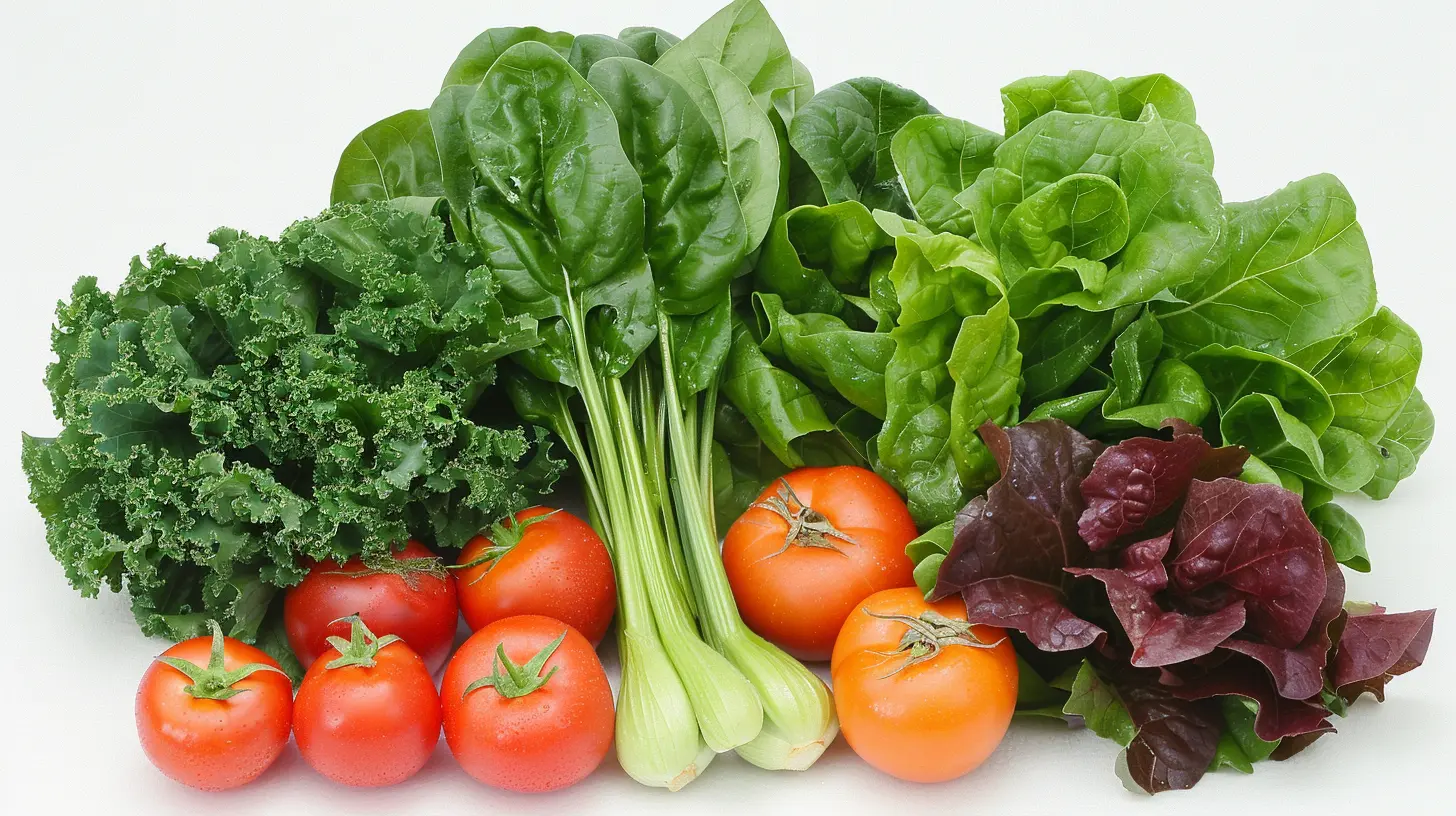
3. Hit the Local Farmers’ Market
Farmers’ markets are like treasure hunts for budget-friendly organic food. Many local farms use organic practices but can’t afford the official certification, so their produce is just as good as the certified organic versions—but way cheaper. Plus, you’re supporting small, local farmers.Here’s a pro tip: go towards the end of the market hours. Farmers are often eager to sell off their remaining stock and might even lower prices for you. Don’t be afraid to haggle a little (politely, of course)—it’s all part of the experience!
4. Buy in Bulk
Ever walk into the bulk aisle and think, "Do I really need a mountain of oats?" The answer is yes. Buying organic staples like rice, beans, lentils, quinoa, and nuts in bulk can save you serious cash. Bulk items usually cost less per pound compared to their pre-packaged counterparts, and you can buy only what you need—no waste, no extra costs.Bring your own reusable containers or bags to make it even more eco-friendly!
5. Stick to Whole Foods (No, Not the Store)
Processed organic foods, like organic snacks, crackers, or frozen meals, might sound convenient, but they come with a hefty price tag. Instead, focus on whole, unprocessed foods—think fresh produce, grains, legumes, and proteins. Whole foods are not only cheaper but also healthier because they’re free from added sugars, fats, and preservatives.It’s like cutting out the middleman—you’re getting closer to the source, and your wallet will thank you.
6. Get to Know Store Brands
Most grocery stores now offer their own line of organic products, and guess what? They're usually way cheaper than name brands. For example, stores like Trader Joe’s, Aldi, and Costco have affordable organic options that don’t sacrifice quality.Next time you’re shopping, take a peek at the store-brand labels. You might be surprised at how much you can save without skimping on your organic goals.
7. Meal Plan Like a Pro
You’ve heard it before, but meal planning is a game-changer when it comes to eating better on a budget. Plan your meals around what’s on sale and what’s in season. If sweet potatoes are discounted this week, turn them into soups, casseroles, or roasted side dishes.And don’t forget leftovers—they’re your best friend when you’re trying to stretch your dollars. Make large-batch recipes, freeze the extras, and boom—you’ve got organic meals ready to go at a moment’s notice.
8. DIY When You Can
Pre-cut fruits, salad kits, and shredded cheese are convenient but come with a premium price tag. Instead, roll up your sleeves and do the prep work yourself. Buy whole carrots and chop them into sticks, or grab a head of lettuce and rinse it at home.Making your own products—like salad dressings, bread, or even nut butter—can also save you money in the long run. Plus, you’ll know exactly what goes into your food!
9. Freeze It for Later
Freezing is the ultimate money-saving trick. If you spot a great deal on organic produce, stock up and freeze what you can’t use right away. Bananas going bad? Freeze them for smoothies. Got too many berries? Freeze them for later.The freezer is your secret weapon for reducing food waste and keeping your grocery bill in check. Just remember to label and date everything so it doesn't get lost in the icy abyss.
10. Join a CSA
Community Supported Agriculture (CSA) programs are an awesome way to get fresh, organic produce directly from local farms. You pay upfront for a "share" of the harvest and receive a box of goodies each week. The cost per week often ends up being less than you’d spend at the grocery store for the same amount of organic food.Many CSA programs even offer flexible payment plans or discounts for low-income households, making them accessible to a wider range of people.
11. Grow Your Own
Okay, I know not everyone has a green thumb, but hear me out. Growing your own organic food—whether it’s a full-blown garden or just a few potted herbs on your windowsill—can save you money and give you the freshest produce possible.Start small with easy-to-grow plants like tomatoes, lettuce, or basil. You’ll be surprised at how satisfying (and cost-effective) it is to pluck fresh, organic veggies straight from your own backyard.
Final Thoughts: Small Changes, Big Impact
Eating organic on a budget isn’t about being perfect; it’s about being intentional. By making small, strategic changes—like shopping seasonally, buying in bulk, or growing your own—you can enjoy the benefits of organic food without overspending.Remember, every little step counts. You don’t have to go 100% organic overnight. Start with what works for your budget and lifestyle, and build from there. Your health (and your wallet) will thank you.
all images in this post were generated using AI tools
Category:
Organic FoodsAuthor:

Tiffany Foster
Discussion
rate this article
3 comments
Beatrice Fuller
While the allure of organic foods is undeniable, the secret to making it work on a budget lies in unexpected places. Embrace the unusual tips within this article; they might just unlock a world of affordable health treasures. Dare to discover what lies beneath the surface of your grocery choices.
June 21, 2025 at 5:02 PM

Tiffany Foster
Thank you for your insightful comment! I’m glad you found the tips intriguing and hope they help you explore affordable organic options!
Beatrice Torres
Choosing organic doesn’t have to break the bank! Prioritize seasonal produce, buy in bulk, and embrace local farmers' markets. Remember, investing in your health is non-negotiable. Don’t settle for less; your body deserves the best. Eating healthy on a budget is not just possible, it’s essential. Make it happen!
June 20, 2025 at 3:55 AM

Tiffany Foster
Absolutely! Prioritizing seasonal produce and supporting local farmers are great strategies for enjoying organic foods without overspending. Investing in your health is always worthwhile!
Nico Wyatt
Absolutely love this article! 🌱 Finding ways to eat organic without breaking the bank is such a game-changer. These tips are practical and inspiring—let’s make healthy choices together! 💚
June 19, 2025 at 3:02 AM

Tiffany Foster
Thank you so much! I'm glad you found the tips helpful. Let's embrace healthy eating together! 💚🌱
